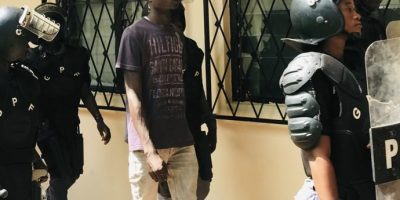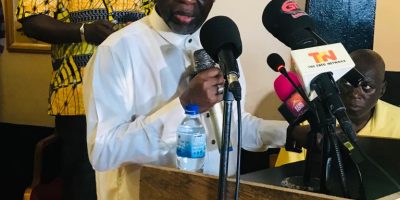 by Alagi Yorro Jallow.
by Alagi Yorro Jallow.
The allegations of torture and ill-treatment by the Gambia Police Force has once again given rise to the demand for a separate law against torture. It is, therefore, essential to examine whether the Gambia’s existing law is inadequate to deter incidents of custodial torture at prisons and police stations also in other detention centers. The police officer(s) who are accused of the alleged conspiracy, or for aiding and abetting criminal conduct, police bestiality and extortion must be arrested, investigated, and visited with dismissal vide orderly room trial for conducts prejudicial to reasonable Force(service) discipline!
I proposed the Govt to enact a law prohibiting torture: Torture is a moral affront to the conscience of every Gambian and a total violation of every Gambian Constitutional ethos. It is horrifying to note that several people died in custody in the Gambia. Hundreds of our fellow citizens! And Gambians have remained oblivious. The horrific story about the custodial death of a student at Brikama, Ebrima Barry, Transports Union leader Lamin Dibba, and Pro-democracy activist Solo Sandeng and many more deaths because of police brutality in custody are another reminder of our duty to act against torture.
Torture is not defined in the law, but the definitions of ‘hurt’ and ‘grievous hurt’ are clearly laid down. Though the definition of ‘hurt’ does not include mental torture, the courts have to include psychic torture, environmental coercion, tiring interrogative prolixity, and overbearing and intimidatory methods, among others, in the ambit of pain. Voluntarily causing hurt and grievous hurt to extort confession are also provided in the laws with enhanced punishment. Under the law, a judicial magistrate inquires into every custodial torture.
The National Human Rights Commission should lay down specific guidelines for conducting an investigation in a turning point in the evolving jurisprudence on custodial torture cases that policemen found guilty of custodial torture should be punished. Therefore, there is neither a shortage of precedents nor any deficiency in the existing law.
A bill urging the Govt to set out an immediate timeline to urgently facilitate passage of legislation prohibiting torture; a law against torture should enable Gambian citizens to access justice swiftly and efficiently. In 2017 the Gambia ratified the United Nations Convention Against Torture. The decision to approve UNCAT was one of the critical pledges President Barrow made in 2017 while attending the 61st Ordinary Session of the African Commission on Human and Peoples’ Rights. The Gambia becomes the 165th State party to the Convention. The Gambia also ratified the related instrument, the International Convention for the Protection of All Persons from Enforced Disappearance.
The Gambia’s ratification of the United Nations Convention Against Torture is a strong expression of President Adama Barrow’s Government’s commitment to promote and protect human rights.
Throwing back: Urging the Gov’t to Facilitate Passage of Legislation Prohibiting Torture




Ma sha Allah great and thanks for sharing